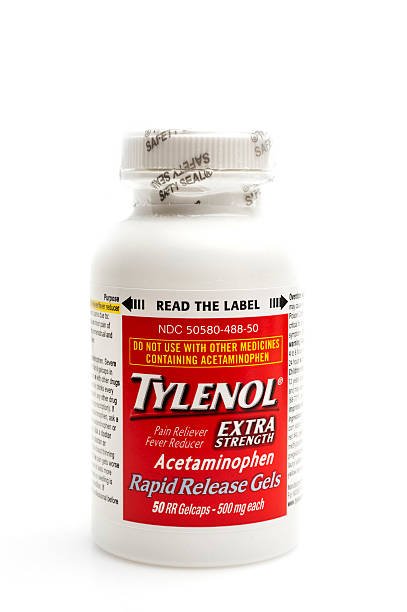
Introduction
As we age, our bodies undergo various changes that can affect how we respond to medications. What was once a routine treatment option in our younger years might present unexpected challenges in later life. This is why medication safety becomes increasingly crucial for seniors.
Among the resources aimed at enhancing medication safety for older adults, the Beers List stands out. Compiled by the American Geriatrics Society, the Beers List is a comprehensive compilation of medications that are potentially inappropriate for seniors due to the heightened risk of side effects and adverse reactions.
Understanding the Beers List and its recommendations is a step forward in safeguarding your health. It’s not just about the medications you should avoid; it’s also about fostering a dialogue between you and your healthcare providers to ensure that your treatment plans are aligned with the safest practices for managing your health conditions.
Commonly Misunderstood Medications
Why Some Drugs Are Perceived as Safe
Many medications, available over-the-counter (OTC) or prescribed for decades, have built a reputation for safety and efficacy. This perception often extends into our senior years, where the familiar becomes synonymous with “safe.”
However, the reality is that the aging body processes drugs differently. Renal and hepatic functions, which are pivotal in drug metabolism and excretion, tend to decline with age. This can lead to increased drug concentrations in the body, prolonged drug action, and subsequently, a higher risk of adverse effects.
Moreover, the prevalence of multiple chronic conditions among seniors often necessitates polypharmacy (the simultaneous use of multiple drugs), increasing the complexity of managing drug interactions and side effects.
The Importance of Awareness About Drug Interactions and Side Effects
Awareness is the first line of defense in medication safety. Many seniors are unaware of the potential risks associated with certain medications, especially when combined with other drugs.
For instance, the benign pain reliever you’ve used for years could interact adversely with a new prescription, leading to harmful, sometimes life-threatening, consequences.

Understanding drug interactions is not just about knowing which drugs don’t mix well. It’s also about recognizing that even everyday substances like alcohol or over-the-counter supplements can have significant, unexpected interactions with prescription medications.
Equally important is being informed about potential side effects. What might seem like a new health issue could actually be a side effect of a medication you’ve been taking. Recognizing these side effects early can prevent them from escalating into more serious health concerns.
In this light, the Beers List acts as a crucial tool, helping seniors and healthcare professionals alike identify medications that carry a higher risk of adverse effects and interactions in the elderly population. However, it’s not just about avoiding certain drugs; it’s also about finding safer alternatives that achieve the same treatment goals without compromising health.
Specific Drugs
Antibiotics (Broad-Spectrum)
- Risks: Overuse can lead to antibiotic resistance; potential side effects include gastrointestinal disturbances, risk of Clostridium difficile infection (a potentially life threatening gut infection), and, in some cases, nephrotoxicity or hepatotoxicity.
- Interactions: Can interact with warfarin, leading to increased bleeding risk; may also interact with oral contraceptives, reducing their effectiveness.
- Safer Alternatives: Use narrow-spectrum antibiotics when possible to target specific pathogens and reduce the risk of resistance; always confirm the necessity of antibiotics through appropriate testing.
- Risk of severe allergic reaction that could be fatal: Stevens-Johnsons Syndrome (a rare, serious disorder of the skin and mucous membranes.)
Acetaminophen (Tylenol)
- Risks: High doses (>4,000 mg/day) or chronic use can lead to liver damage; risk is heightened in individuals with existing liver disease or those consuming alcohol regularly.
- Interactions: Increased risk of liver damage when combined with alcohol or other hepatotoxic drugs; can affect blood glucose measurements.
- Safer Alternatives: Non-pharmacological pain management strategies; consider non-NSAID alternatives or topical treatments for pain relief.
- Additionally Acetaminophen is added to other products like cold and flu medications which increases risk of toxicity

Diphenhydramine (Benadryl)
- Risks: Anticholinergic effects can lead to confusion, dry mouth, constipation, urinary retention, and blurred vision; sedative effects increase the risk of falls and cognitive impairment in the elderly.
- Interactions: Enhanced CNS depression and anticholinergic side effects when combined with other CNS depressants or anticholinergic drugs.
- Safer Alternatives: Consider second-generation antihistamines like loratadine or cetirizine for allergic reactions, which have fewer anticholinergic and sedative effects.
Non-Steroidal Anti-Inflammatory Drugs (NSAIDs) Ibuprofen/Naprosyn/Aspirin
- Risks: Increased risk of gastrointestinal bleeding, peptic ulcer disease, kidney damage, and exacerbation of cardiovascular conditions, especially with long-term use. (can worsen congestive heart failure and high blood pressure)
- Interactions: Can reduce the effectiveness of antihypertensives; increased risk of bleeding with anticoagulants; heightened nephrotoxicity with diuretics or ACE inhibitors (lisinopril/captropril).
- Safer Alternatives: Acetaminophen for pain management (mindful of liver toxicity risks); consider topical NSAIDs to reduce systemic side effects; use the lowest effective dose for the shortest possible duration.
- This may one of the most potentially dangerous medications for seniors
Benzodiazepines (e.g., Diazepam, Lorazepam)
- Risks: Increased risk of cognitive impairment, delirium, falls, and fractures in the elderly; potential for dependence and withdrawal symptoms.
- Interactions: Enhanced sedative effects and respiratory depression with opioids, alcohol, or other CNS depressants.
- Safer Alternatives: Non-pharmacological interventions for anxiety and insomnia; consider SSRIs (Zoloft/Citalopram/Prozac) for anxiety disorders; melatonin or behavioral therapies for insomnia.
Anticholinergics (e.g., Atropine, Scopolamine, Elavil, Ditropan, and, Antihistamines)
- Risks: Risk of cognitive decline, confusion, dry mouth, blurred vision, constipation, and urinary retention; particularly problematic in the elderly.
- Interactions: Increased anticholinergic load and risk of side effects when combined with other anticholinergic medications.
- Safer Alternatives: For depression, consider SSRIs or SNRIs (Zoloft/Citalopram/Prozac); for allergies, consider second-generation antihistamines; for GI spasms, consider peppermint oil capsules or other non-anticholinergic options.

Antipsychotics (for behavioral problems in dementia)
Haldol, Risperdal, Seroquel
- Risks: Increased risk of cerebrovascular events and mortality in elderly patients with dementia; can cause uncontrolled trembling of the mouth and limbs, metabolic changes, and sedation.
- Interactions: Enhanced CNS depression with other sedatives; increased risk of heart conduction abnormalities especially when combined with other drugs that cause the same problem (methadone).
- Safer Alternatives: Non-pharmacological interventions for behavioral problems in dementia; consider antipsychotics only as a last resort and at the lowest effective dose.
Corticosteroids (chronic use)
Prednisone
- Risks: Risk of osteoporosis, hypertension, hyperglycemia, susceptibility to infections, and adrenal suppression with long-term use.
- Interactions: NSAIDs increase the risk of GI bleeding; vaccines may have reduced efficacy.
- Safer Alternatives: For chronic conditions, consider non-steroidal anti-inflammatory drugs (NSAIDs), disease-modifying antirheumatic drugs (DMARDs), or biologics, depending on the condition being treated; use the lowest effective dose for the shortest duration if corticosteroids are necessary.
Proton Pump Inhibitors (PPIs)
Protonix, Prilosec
- Risks: Long-term use associated with increased risk of vitamin B12 deficiency, bone fractures, kidney disease, and Clostridium difficile infection.
- Interactions: Can reduce the effectiveness of drugs that require a certain stomach pH for absorption; can increase the risk of nephrotoxicity when used with certain other medications like aminoglycosides (antibitotic).
- Safer Alternatives: For some conditions, H2 receptor antagonists (Zantac)might be a safer alternative; lifestyle modifications can also alleviate symptoms for some gastroesophageal reflux disease (GERD) patients.
Best Practices for Medication Management in Seniors

Navigating the complexities of medication management in our senior years requires a proactive and informed approach. Here are some essential tips for seniors and their caregivers to ensure medications are used safely and effectively:
- Maintain an Up-to-Date Medication List: Keep a comprehensive list of all medications, including over-the-counter drugs, supplements, and vitamins. This list should be shared with every healthcare provider you visit to ensure a holistic understanding of your medication regimen.
- Understand Your Medications: Be informed about each medication you take, including its purpose, dosage, potential side effects, and any specific instructions for use. Don’t hesitate to ask your pharmacist or doctor if anything is unclear.
- Use One Pharmacy if Possible: This can help reduce the risk of drug interactions and duplication, as your pharmacist can monitor your overall medication profile.
- Regular Medication Reviews: Schedule regular appointments with your healthcare provider to review all your medications. These reviews are critical for assessing the necessity of each medication, adjusting dosages, and identifying any potential interactions or side effects.
- Be Cautious with New Symptoms: If you experience new or unusual symptoms, consider that they might be related to your medications. Discuss these changes with your healthcare provider before making any adjustments on your own.
- Practice Safe Storage and Disposal: Store medications as recommended and dispose of expired or discontinued medications properly to prevent accidental misuse.
- Be Mindful of Changes: Aging can affect how your body processes medications. Changes in weight, kidney function, and overall health can necessitate adjustments in your medication regimen.
- Advocate for Yourself: Don’t be shy about discussing potential medication concerns with your healthcare providers. If you’re worried about a medication’s side effects or interactions, express your concerns.
The Importance of Regular Medication Reviews with Healthcare Providers
Regular medication reviews are a cornerstone of safe medication management for seniors.
These reviews offer an opportunity to evaluate the effectiveness, necessity, and safety of all medications.
They also provide a platform for discussing any concerns or preferences you might have, including exploring alternative treatments that might carry fewer risks or side effects.
We encourage all seniors and their caregivers to engage in open, ongoing conversations with their healthcare providers about medication safety.

Together, you can work towards ensuring that your medication regimen supports your health and well-being in the safest possible manner. Remember, you are the most important advocate for your health, and your active involvement in medication management is key to maintaining your quality of life.


